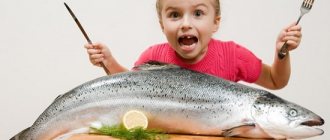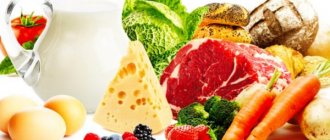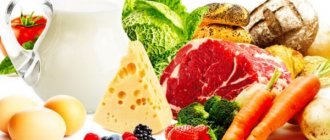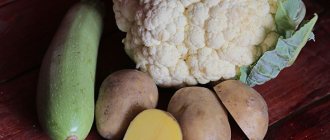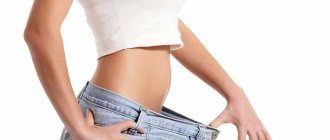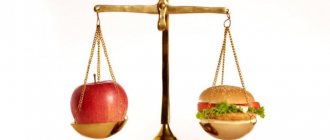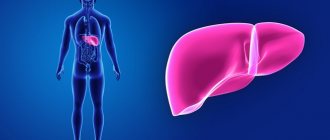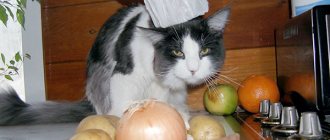Hello, dear readers! Let's discuss today whether it is possible to quickly lose weight and stay healthy if you eat foods without carbohydrates?
These substances are considered the main suppliers of energy to the human body. But at the same time, they can become the main source of problems with excess weight.
The creators of numerous protein diets assure that it is worth giving up these “enemies of slimness.” And you will be happy in the form of a beautiful and slender figure. Is it so? Let's figure it out together.
Low Carb Vegetables
Vegetables are low carbohydrate foods and an important source of nutrition in the human diet. They are rich in fiber as well as healthy compounds including vitamins, phytochemicals and minerals.
Carbohydrates in vegetables table
| Name of vegetable | Content in grams per 100 g |
| Eggplant | 5,5 |
| Spinach | 2,3 |
| Sorrel | 5,3 |
| Zucchini | 5,7 |
| Green pea | 13,3 |
| White cabbage | 5,4 |
| Garlic | 21,2 |
| Green beans | 4,3 |
| Cauliflower | 4,3 |
| Tomatoes | 4.2 |
| Potato | 19,7 |
| Beet | 10,8 |
| Turnip | 5,9 |
| Leek | 7,3 |
| Carrot | 7 |
| Onion | 9,5 |
| Cucumber | 3 |
| Sweet red pepper | 5,7 |
| Ginger root | 17,8 |
| Sweet green pepper | 4,7 |
| Broccoli | 6,6 |
| Brussels sprouts | 3,1 |
| Pumpkin | 4,4 |
| Asparagus | 3,1 |
Meat
All types of meat contain almost no carbohydrates. The only exception is parts such as the liver, which contains about 5% carbohydrates.
Beef (zero)
Beef is filling and rich in important elements such as iron and B12. There are dozens of ways to prepare it, from ribs to ground meat and cutlets.
Carbohydrates : zero
Lamb (zero)
Like beef, lamb contains a lot of nutrients, iron and B12. Because the animal is often grass-fed, the meat often contains an essential fatty acid called conjugated linoleic acid, or CLA (14).
Carbohydrates : zero
Chicken (zero)
Chicken is one of the most popular foods on earth. It contains many useful substances and is an excellent source of protein.
If you're on a low-carb diet, you may want to opt for fattier cuts like wings or thighs.
Carbohydrates : zero
Pork, including bacon (usually zero)
Pork is another delicious type of meat, and bacon is a favorite of many low-carb dieters.
Bacon, however, is a processed meat, so it hardly qualifies as a “health food.” However, on a low-carb diet it is quite acceptable to eat a moderate amount.
Most importantly, try to buy bacon from retailers you trust, make sure it doesn't contain artificial additives, and don't overcook the meat when cooking.
Carbohydrates : zero. But read the label carefully and avoid smoked or sugar-cured bacon.
Jerky (usually zero)
Dried meat is meat that has been cut into thin pieces and dried. And, as long as there is no added sugar or artificial additives, it can be a great addition to a low-carb diet.
However, we should not forget that what is sold in stores is often highly processed and is no longer healthy food. Therefore, it is best to make such meat yourself.
Carbohydrates : depends on the type. If it's just meat with seasoning, then approximately zero.
Low Carb Fruits
Fruits are low in carbohydrates and high in nutrients.
Carbohydrates in fruits table
| Name of fruits and berries | Content in grams per 100 g |
| Apricot | 10,5 |
| Quince | 9 |
| Blueberry | 8,6 |
| Banana | 22,4 |
| Orange | 8,4 |
| Black currant | 8 |
| Pomegranate | 11,8 |
| Cherry | 11,3 |
| Grapefruit | 7,3 |
| Pear | 10,7 |
| Figs | 13,9 |
| Dogwood | 9,7 |
| Raspberries | 9 |
| Lemon | 3,6 |
| Gooseberry | 9,9 |
| Peach | 10,4 |
| Plum | 9,9 |
| Grape | 17,5 |
| Cherry plum | 7 |
| Apple | 11,5 |
| Prunes | 57,5 |
| Cherries | 10,6 |
| Strawberries | 8 |
| Mandarin | 8,6 |
| Red Ribes | 8 |
What to do in case of a breakdown?
Products without carbohydrates, the list of which may not always fully satisfy the taste preferences of some people, are quite difficult to consume for a long time. It happens that the body requires sweets due to stress, mental tension or bad mood.
If a breakdown occurs, you should not stop the diet and overeat suddenly. You can slightly increase the load in the fitness room, drink more water and reduce the portion size for 1-2 days and then continue the diet. To prevent breakdowns, it is not recommended to go to grocery stores, cafes, and pizzerias on an empty stomach.
Dairy products with a small amount of carbohydrates
The consumption of products in this category is necessary. It also contains low carbohydrate foods.
| № | Product name | Content in grams per 100 g |
| 1 | Gruyder cheese | no-carb |
| 2 | Greek yogurt | 9 |
| 3 | Butter | no-carb |
| 4 | Cottage cheese | 14 |
| 5 | Goat milk | 4,5 |
| 6 | Low fat sour cream | 15,6 |
| 7 | Philadelphia cheese | 7,7 |
| 8 | Cow's milk 2% | 4,8 |
| 9 | Ryazhenka | 4,9 |
| 10 | Kefir | 4,5 |
Fish and seafood
Fish and other seafood are generally very nutritious and healthy.
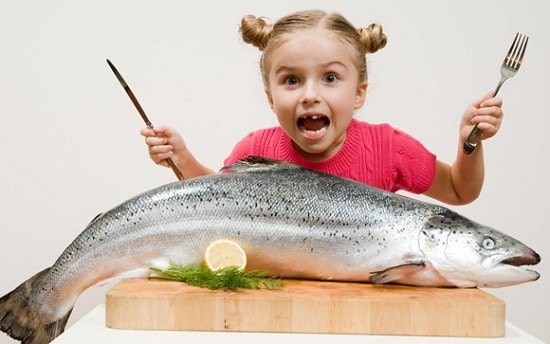
They are especially high in vitamin B12, iodine and omega-3 unsaturated fatty acids, which are elements that many people lack in their diets.
Like meat, almost all fish and seafood contain almost no carbohydrates.
Salmon (zero)
Salmon is one of the most popular fish among health-conscious people, and for good reason.
It is an oily fish, which means it contains significant reserves of heart-healthy fats, in this case, omega-3 unsaturated fatty acids.
Salmon is also rich in vitamin B12, D3 and iodine.
Carbohydrates : zero.
Trout (zero)
Carbohydrates : zero.
Like salmon, trout is a type of fatty fish rich in omega-3 unsaturated fatty acids and other important elements.
Sardine (zero)
Sardine is a fatty fish that is usually eaten almost entirely, bones and all.
Sardine is one of the most nutrient-dense fish on the planet, and contains almost everything the human body needs.
Carbohydrates: zero.
Shellfish (4-5% carbohydrates)
Unfortunately, shellfish find their way into our daily diet much less often than they deserve. However, they are on a par with the healthiest products in the world, and in terms of nutritional richness they can compete with meat from internal organs.
Shellfish typically contain small amounts of carbohydrates.
Carbohydrates : 4-5 grams of carbohydrates per 100 grams of shellfish.
What other foods are low in carbohydrates?
- Sweets. There are no absolutely carbohydrate-free products in this category, but there are some with minimal content. These include: marshmallows - 100 g contains 70 g, marmalade - 76 g, honey - 81.5 g, dark chocolate - 46 g.
- Coconut oil. A carbohydrate-free product rich in fatty acids, which speed up the metabolic process.
- Walnuts. Eating nuts will saturate your body with omega-3 fatty acids. 7.5 g contains 1 g.
- Chicken eggs. One unit contains about 0.5 g.
- Extra virgin olive oil. Completely carb-free and one of the healthiest oils.
- Flour and cereals. You should not completely abandon these products, but give preference to unrefined cereals, wholemeal flour and legumes.
- Beverages. Recommended for consumption are herbal tea, coffee without sugar, and unsweetened fruit juices diluted with water.
- Herbs, spices and seasonings. All greens, spinach and lettuce are good for the gut and are low carb. The exceptions are ginger root and garlic, but they are consumed in small quantities.
Following a long-term diet based on the consumption of foods that do not contain carbohydrates is contraindicated. It is necessary to increase the consumption of vegetables, cereals, unsweetened fruits and exclude baked goods, sugar and products made from white flour. This will not only allow you to lose excess weight, but will also have a positive effect on your health.
What to remember:
- Doctors warn that you can stick to a protein diet for no longer than a month. Otherwise, intoxication of the body may occur. And serious health problems may arise.
- People with kidney and digestive system diseases are contraindicated to abstain from carbohydrates!
- One serving of food should contain no more than 40 grams. squirrel.
- Without carbohydrates, our brain will not be able to fully function. But this statement only applies to complex carbohydrates. “Simple” foods can be easily eliminated from your diet.
- Proteins contained
in protein foods help build muscle. And they help burn subcutaneous fat.
My opinion is that everything is good in moderation. Try new ways, experiment. But don’t forget - a balanced diet and moderate physical activity are still the main companions to a slim figure and good health. See you in the next article!
Dinner
We suggest limiting your evening meal to a serving of fish with boiled beets or 150-200 grams of low-fat cottage cheese topped with yogurt. You can also prepare an omelette with 3-4 whites and add legumes.
If you feel like snacking during the day, don't starve yourself.
. You are free to eat unsweetened fruits, drink kefir or fermented baked milk, or indulge in cottage cheese.
Without prejudice to the Treaty, in particular Articles 28 and 30, Member States may not restrict or prohibit the marketing or advertising of foodstuffs complying with these Regulations by applying unharmonized national provisions governing the labeling of certain foodstuffs or foodstuffs in general.
If a Member State considers it necessary to adopt new legislation, it must inform and justify the measures it intends to take to the Commission and other Member States. The Member State concerned shall implement the measures provided for within six months after the notification referred to in paragraph 1 has been submitted, provided that the opinion of the Commission is not negative.
You must understand that you always need to eat; you should not lower your daily limit below 1200 kcal. When you reach your desired weight, you shouldn’t immediately pounce on junk food.
A low-carb diet will certainly help you lose weight
, however, you must understand that a set of actions is always much more effective. It is necessary to play sports, do warm-ups and exercises, drink more clean water and eat healthy foods. It is then that you will be able to see your own slim and toned figure, healthy skin and a happy smile.
If the Commission's opinion is negative, it shall determine, in accordance with the procedure referred to in Article 24(2) and before the expiration of the period referred to in the first subparagraph of this paragraph, whether the measures provided for may be provided for. The Commission may require certain changes to be made to the prescribed measure.
If a Member State has serious reasons to believe that a requirement does not comply with the provisions of this Regulation or that the scientific justification provided for in Article 6 is insufficient, the Member State may temporarily withdraw the use of that requirement on its territory.
Low-carbohydrate diet menu for a week for diabetics
To reduce the risk of transition from type 2 diabetes to type 1 diabetes, patients are prescribed a low-carbohydrate diet. In type 2 diabetes, insufficient insulin is produced. As a result, metabolism is disrupted, which leads to a jump in cholesterol in the blood and the development of hyperglycemia and glycosuria. If you don't change your diet, the risk of developing type 1 diabetes is very high.
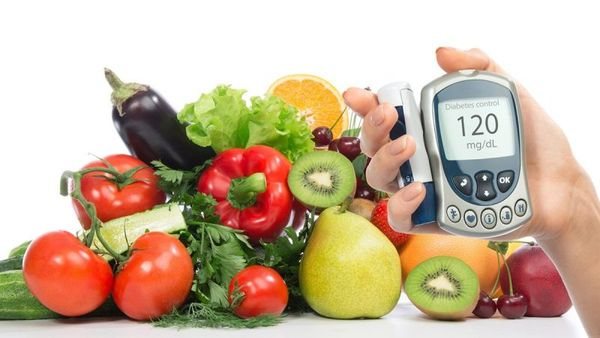
Patients with type 2 diabetes should remove carbohydrate foods from the menu. The basis of the diet is protein (fish and meat dishes), dairy products, mushrooms, eggs, seafood.
Vegetables and fruits are chosen with a low glycemic index. You should eat fractionally 5 times a day. Food processing - foods are steamed, boiled, baked.
For breakfast you can eat an omelet or cottage cheese casserole. The first snack is unsweetened crackers, fresh or baked apples. For lunch, as a hot dish, you can cook fish, mushroom soups, soups in broth made from dietary meat. Second snack – yogurt, nuts. Dinner - it is allowed to eat corn, rice porridge, vegetable salads, steamed meat balls made from lean meat.
Possible daily diet
To give you a rough idea of what your daily menu may look like without ingredients, we suggest considering the standard option. All ingredients can be interchanged or excluded:
The permit does not reduce the civil and criminal liability of the food business operator for the food product in question. Changes, suspensions and cancellations of permits. The Authority, on its own initiative or at the request of a Member State or the Commission, shall give an opinion as to whether the health requirement included in the lists provided for in Articles 13 and 14 complies with the conditions laid down in these Regulations.
He shall communicate his opinion immediately to the Commission, the Member States and, if necessary, to the first applicant for this application. The applicant and the consumer or member of the public may submit comments to the Commission within 30 days of publication.
Breakfast
You can consume 100-150 grams of veal, fresh green peas and tea without sugar. Or get by with 150 grams of low-fat cottage cheese with coffee. You can also start your day with a glass of kefir and 1-2 eggs.
Dinner
The middle of the day usually requires us to eat a hearty meal and re-saturate our body with energy and strength, so we suggest trying to have lunch with 200 grams of fish and a couple of apples. You can use the option with 200 grams of chicken fillet and a portion of grated carrots with butter. An excellent lunch would be 100-150 grams of beef with tomatoes.
The Commission evaluates the Authority's opinion as soon as possible and all comments received. The authorization, if necessary, shall be modified, suspended or revoked in accordance with the procedure laid down in Article 17. The Commission shall establish and maintain a Community Register on Nutrition and Health.
Health claims authorized on the basis of proprietary data must be included in a separate appendix to the Register along with the following information. The register is publicly available. A subsequent applicant may not rely on scientific data and other information required pursuant to Article 15(2) submitted by the first applicant within seven years from the date of authorization, unless the applicant later agrees with the previous applicant that such data and information may used where.
How to get out of a low-carb diet?
It is not recommended to maintain a diet for more than 2-8 weeks, that is, it is impossible to completely eliminate carbohydrate-free foods forever, as this is life-threatening. Exiting the diet should be done smoothly. If you are completely giving up carbohydrates, you should start with low-carb foods.
It is unacceptable to forget about moderation; you cannot randomly consume prohibited food in any quantity. Overeating can cause pain in the gastrointestinal tract, a feeling of weakness, fatigue, because the body is already unaccustomed to receiving carbohydrate foods. To maintain long-term results, particularly harmful carbohydrates (soda, baked goods, sweets) should be consumed extremely rarely, in the first half of the day.

